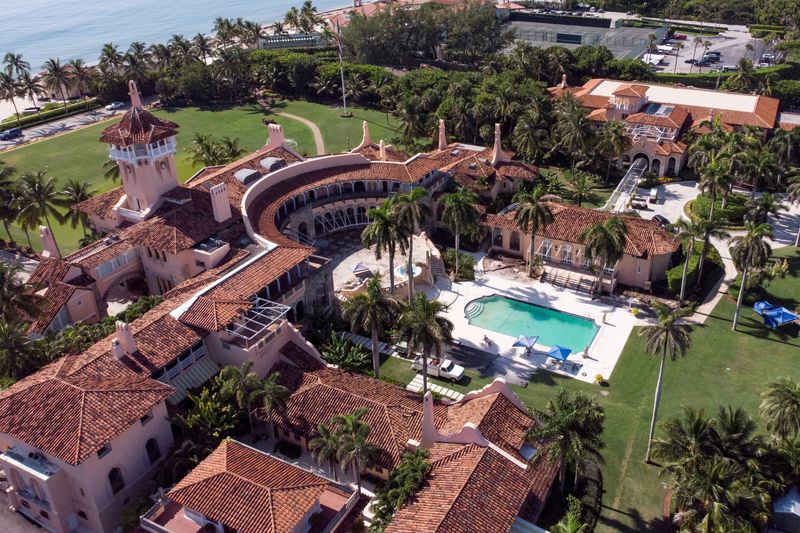By Andrew Goudsward
FORT PIERCE, Florida (Reuters) -The judge overseeing Donald Trump's classified documents case indicated on Tuesday that she was unlikely to grant his lawyers' request to exclude swaths of evidence from trial on the grounds that FBI agents had been given too much leeway to search his property.
At a hearing in a federal court in Florida, Judge Aileen Cannon told Trump's lawyers she was "failing to see" why a search which turned up dozens of boxes of haphazardly stored national security documents at his Mar-a-Lago home was legally problematic.
Cannon, a Trump, appointee, questioned Trump's lawyers' assertion that the FBI might not have won court permission for the search if they had included certain information, such as the fact that FBI officials had debated whether to seek permission from Trump's lawyers for the search.
"Why would that have mattered legally?" Cannon asked Trump lawyer Emil Bove. "Couldn't it just be that reasonable minds disagree?"
The evidence at issue is central to the criminal case, which charges Trump with illegally holding on to sensitive national security documents after he left office in 2021. Trump has pleaded not guilty.
The Republican presidential candidate also has pleaded not guilty in separate criminal cases in Georgia and Washington that charge him with trying to overturn his 2020 election defeat to Democrat Joe Biden. A Manhattan jury in May found Trump guilty of covering up his former lawyer's hush money payment to an adult film actress.
Cannon, who was nominated for her job by Trump, ruled in his favor in a prior challenge of the FBI's 2022 search.
She has allowed other legal challenges by Trump's lawyers to delay any trial until likely after the Nov. 5 election, when Trump and Biden will face each other again.
Trump’s lawyers argued that the Mar-a-Lago search warrant violated the U.S. Constitution because it gave agents overly broad authority to comb the property to seize potential evidence. They also argued that prosecutors did not inform the judge who approved the warrant of information helpful to Trump’s defense.
The search turned up about 100 classified documents stashed on the property.
Prosecutors defended the court-approved search as appropriate and necessary. The search came after prosecutors learned that Trump had deliberately thwarted a legal demand to return any classified documents that remained at Mar-a-Lago, according to the indictment.
Trump’s lawyers were also expected to ask Cannon to quash evidence collected from Trump’s former attorney Evan Corcoran, who was compelled to testify in the investigation. That portion of the hearing took place out of public view.
Notes from Corcoran, who represented Trump earlier in the documents probe, form an important part of the case that Trump obstructed government efforts to retrieve the records after being told to return them. Trump asked Corcoran at one point in the investigation why he could not falsely tell the government that no classified documents remained at Mar-a-Lago, according to prosecutors.
Trump has argued in court filings that prosecutors violated his attorney-client privilege, which generally protects conversations between lawyers and the people they represent from disclosure, when they brought Corcoran before a grand jury and obtained notes on his conversations with Trump.
A different federal judge previously ruled that Corcoran must testify because prosecutors had shown that his legal advice was used to further criminal activity. Corcoran has not been accused of wrongdoing.

The hearing concluded three days of arguments before Cannon on Trump’s challenges to the case. Trump’s lawyers pressed an argument on Friday and Monday that Smith was unlawfully appointed and that his investigation has been improperly funded.
Cannon has yet to rule on any of those motions.